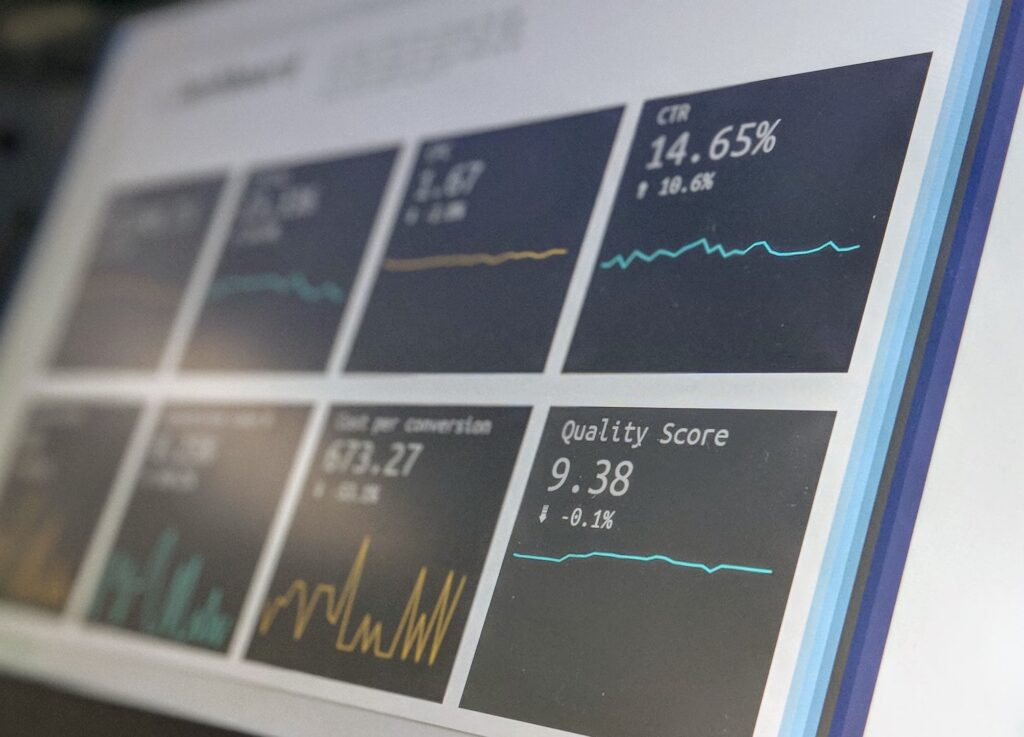CDOs must be able to help businesses achieve value through better use and consumption of data.
Thomas H. Davenport, Richard Y. Wang and Priyanka Tiwari

The Chief Data Officer (CDO) role was only established in 2002, but has grown tremendously since then. In a recent survey of large companies, the 83% reported having a CDO. It's no surprise: data and the approaches to understanding it (analytics and AI) are incredibly important in today's organizations. However, what is surprising is that the work of the CDO is very loosely defined. 62% of CDOs surveyed in the research described below reported that the role is poorly understood and that those who fill it have often experienced excessive expectations and short tenures. There is a clear need for CDOs to focus on how they can create visible value in their organizations.
Part of the problem is that traditional approaches to data management hardly provide visible value by themselves. Many non-technical executives don't really understand a CDO's job and struggle to recognize when it's done well. CDOs are often asked to focus on preventing data problems (defense-focused initiatives) and data management projects such as improving data architectures, governance, and data quality. But the data will never be perfect, which means that executives will always be a little frustrated with this situation in their organization. While improvements in management can be difficult to recognize or measure, more serious problems, such as hacks, breaches, lost or inaccessible data, or poor quality, are much easier to recognize than improvements.
So how can CDOs demonstrate that they are creating value? The primary way data adds value to businesses is by enabling them to understand and predict business performance and customer behavior and incorporate it into products and services, all attack-oriented initiatives. CDOs, therefore, need to be able to help businesses gain value through better use and consumption of data.
This is the main focus of a recent Amazon Web Services-sponsored research project to which all three authors contributed. The research included an extensive survey of 250 CDOs attending the MIT Chief Data Officer/Information Quality Symposium, as well as in-depth interviews with 25 key stakeholders. 41% of surveyed CDOs said they defined success by achieving business goals, significantly more than those who measured success in terms of change management or culture change (19%), technical outcomes ( 5%), prevention of serious data problems (2%), or an equivalent combination of these factors (32%).
Based on the conclusions of this research, we will describe different stages of value creation below. We'll start with a few approaches that work for every type of organization, and then describe others that depend on the data management and analytical maturity of the company employing the CDO.
How CDOs can create value
Take responsibility for analytics and AI. These initiatives are believed to deliver the greatest value: 35% of surveyed CDOs believe that a focus on a small group of key analytics or AI projects is needed to achieve the greatest value. A majority of CDOs (64%) also spend their time activating new business initiatives based on data, analytics or AI. This makes them, officially or otherwise, chief data and analytics officers, a fast-growing variant of the title of CDO. Several CDOs have commented in interviews that the combination of data supply and demand management is effective in delivering value.
At the lower levels of maturity, focus on a few key projects of stakeholder value. If your organization is early in its data and analytics journey, pick a few AI and analytics use cases to develop based on consultations with key stakeholders. Make sure these few projects are implemented successfully and don't aim too high: Modernize the data environment only when particular analytic applications or AI use cases are developed. This way business leaders can see the connection between data modernization and the business value it enables.
Focus on data products. Data products are combinations of data and analytics/AI to drive a specific outcome for a customer or employee. An example could be a new simulation model to determine whether wealth management clients will deplete their savings or an attrition model to predict employee exits. Adopting a focus on analytics-driven data products, which encompasses all activities from concept to implementation and ongoing maintenance, is a good way to ensure value creation. Product focus ensures that data scientists, data engineers, and other members of a data product team don't just create algorithms, they collaborate on the implementation of entire business-critical applications. The 39% reported that they are “adopting a data product management orientation with product managers.” This is a relatively new concept, so the fact that so many companies have already adopted a data product orientation is surprising.
Manav Misra, chief analytics and data officer at Regions Bank, ensures that all data products developed by his team are successfully implemented and that business value is carefully measured. Quarterly steering committee meetings are held for each data product, where the business team – the leaders of the business or functional unit that sponsored the development of the data product – report, and the Misra team attends the meeting .
Measure and document results. Carefully measuring the results and value of key projects, sometimes in collaboration with finance management, helps CDOs demonstrate and communicate their value. Sebastian Klapdor, CDO of print and design services firm Vista, is a strong advocate of data products and ensures that all Vista products have an impact, evaluating them quarterly with approval of monetary benefits by finance management . In just two years, his CDO organization documented $90 million in incremental profits, an impressive figure for a company with $1.5 billion in revenue in 2021. Some CDOs have even created online dashboards to describe their results and the value of their organization in relation to data and related business results.
Building relationships with colleagues and business leaders. Successful CDOs find business leaders – and parts of the business – who already value data to a substantial extent and who can be partners in data-driven value creation. Initiatives related to data, analytics and AI require profound changes not only in technical areas, but also in processes, culture, skills and customer/supplier relationships. They cannot be implemented successfully without strong management support, and so CDOs must have close and trusting relationships with them.
Strategies for advanced companies
Other approaches to delivering value depend on the level of sophistication of the company involved in analytics, AI and their data management foundations.
More sophisticated companies can focus on data governance. Data governance is a top CDO activity priority in our survey, but it's a difficult way to get value: It requires changing behavior and requiring data users to undertake data management activities that are not part of of their duties. Given the difficulty of effective data governance, only CDOs who have established value through other means may want to make it a priority. Some CDOs are seeking to establish governance by design, where systems and data structures enforce their proper use through reusable architectures and assets. However, this approach is still in its infancy and requires a high level of data management sophistication.
Advanced companies should strive to create a data-driven culture, although it is difficult to prove its value quickly. A substantial percentage (69%) of CDOs devote a substantial portion of their time to data-driven culture initiatives, and it's clear why: 55% believes the lack of a data-driven culture is the primary challenge to achieving goals corporate. Cultural initiatives typically include data literacy programs and attempts to inculcate data-driven decisions throughout the organization. However, these cultural activities also involve behavioral change and can be slow to materialize. Therefore, CDOs should only undertake culture change in a measured way if they have not already added substantial value through other means.
Build an analytics and data infrastructure if your organization is sophisticated. Some CDOs of relatively advanced AI and analytics companies have pointed out that just completing key projects isn't enough. They believe CDOs need to build an infrastructure to accelerate the use of data, analytics and AI across the enterprise.
Todd James, who leads data and AI for 84.51°, the data science subsidiary of The Kroger Co, said: “One set of strategic use cases is not enough. This creates a series of point solutions. We need to be able to scale by having a set of reusable analytical capabilities… We are looking to create a composite set (built from modular components) of AI and analytics applications that are accessed via APIs.” Similarly, the business data and machine learning (ML) manager of a major bank is very focused on scaling and developing the infrastructure for machine learning. In an interview he stated that: «With ML, we are moving towards platforms that everyone can exploit, both with standardization and with automation. We want to eliminate arbitrary uniqueness and get rid of temporary ML platforms." The bank is also building a feature store: a store of reusable variables for ML models.
THERE ARE NO DOUBTS that organizations need chief data officers and that this job is here to stay as long as its members can add value. Some are clearly doing it. The job may be short on average, but the 30% of the CDOs in our survey has already held the job for more than six years. If CDOs adopt these and other approaches to deliver tangible value with data, analytics and AI, they will be instrumental in transforming their organizations into more digital and data-driven competitors. As Bill Groves, a veteran CDO who has served in this role at Walmart, Honeywell and Dun & Bradstreet put it: "CDOs are not a service organization, they are a transformation organization."
Thomas H. Davenport he is Professor Emeritus of Information Technology and Management at Babson College, visiting scholar at the MIT Initiative on the Digital Economy and senior advisor of the AI practice of Deloitte. He is co-author of All-in on AI: How Smart Companies Win Big with Artificial Intelligence (Harvard Business Review Press, 2023).
Richard Y. Wang is Principal Research Scientist at MIT and founding director and general chairman of the Chief Data Officer and Information Quality (CDOIQ) Symposium. His research on the effectiveness of Chief Data Officers (CDOs) has been used by organizations around the world to create CDO positions.
Priyanka Tiwari is a product marketing leader at Amazon Web Services (AWS). It engages in connected storytelling through AWS databases, analytics, and machine learning services and solutions.





